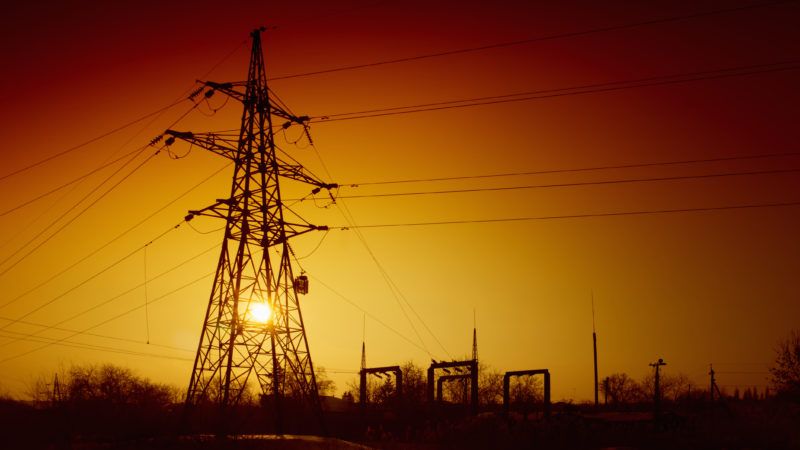The Upside of a Blackout? People Take Care of Themselves and Each Other
Nobody can read the rule book in the dark.

What happens when you've got a power outage on top of a pandemic on top of public demonstrations, a crazy election, and a boiling August when everyone seems ready to jump out of their skin—and down your throat? A kind of Good Samaritan—even libertarian—joy.
When Tropical Storm Isaias toppled trees across the Northeast last week, plunging 1.7 million people (including yours truly) into a blackout, the chaos provided a surprising balm for the soul. Sharing candles, flashlights, and hurry-before-the-meat-goes-bad barbecues gave us all an excuse to work together and make things better. It's a feeling we'd been longing for.
"It reminded me of medical school in the Dominican Republic," says Joe Chiarella, a doctor in Queens, New York, referring to all the extension cords he strung between his home and his neighbors' place. He had a working generator and was more than willing to share power.
As for the giant tree limb that fell, blocking their quiet, suburban street? "All the men on the block—like six of us—pushed and pulled," says Chiarella. (And then they figured out to use rope and a pickup truck.) Result? Street cleared.
And when neighbors needed to buy food because the stuff in the fridge smelled funny? Chiarella gave them rides to the grocery.
Unlike COVID-19, an implacable foe that just keeps on going, here was a natural disaster we could do something about, and no one was stopping us.
For Michelle Lobb Horoho, a preschool teacher and mom of four outside of Philly, the blackout was a time of connecting. She and her husband invited their new neighbors over for a patio supper—people they hadn't gotten to know yet—and "we had this wonderful night with this new couple," she says.
In Bergen County, New Jersey, camp administrator Peter Goldberg and his daughter, 21, were without power for four days. But his daughter invited friends over to sit in the back yard, socially distancing, to play games and shoot the breeze. "It was nice to see them connecting with each other," says Goldberg.
But beyond just the joy of being social again, the blackout gave us something else. "Everybody just feels so helpless right now," says Horoho. "To be able to help each other out was like satisfying that need. Anyone who could do anything to help was offering to do it."
This is exactly the kind of responsibility revolution Philip Howard has been arguing for, especially in his latest book, Try Common Sense: Replacing the Failed Policies of Right and Left. To innovate, to work hard, to feel good about ourselves and our country, "We need to believe that we can make a difference," says Howard.
But that feeling has been slipping away since the 1960s, he says, when bureaucracy began growing like sourdough left to rise. The theory was that if government officials meticulously detailed the procedures for doing anything and everything, no underling would ever make a bad call or dumb mistake. Perfection would be the result.
Instead, the result was thousand-page rule books, frustration, and stagnation, all of which were on display when the coronavirus first hit America.
Scientists eager to start testing in Seattle were stymied for weeks as they awaited government approval, says Howard. Then there was the case of a researcher "who spent day and night writing an emergency authorization to do research on the virus, submitted it to the FDA, and was told, "'Sorry, it's not valid because you didn't submit it in a hard copy,'" says Howard.
That's how innovation, efficiency and compassion can be derailed by onerous rules. Rules can't possibly cover every situation—like an emergency. The only antidote is to assert authority and take responsibility for doing the right thing.
With the power outage, we all got a chance to do that. My husband went and bought ice for the family next door. Other neighbors with a generator placed power strips outside their home so that anyone could come by and charge their electronics. I saw folks sharing hotdogs, and inviting kids over for an impromptu slip 'n' slide, and running errands for each other.
"I'm a a real believer in humanity," says the pre-k teacher, Horoho. Being plunged into darkness allowed that humanity to shine.


Show Comments (30)